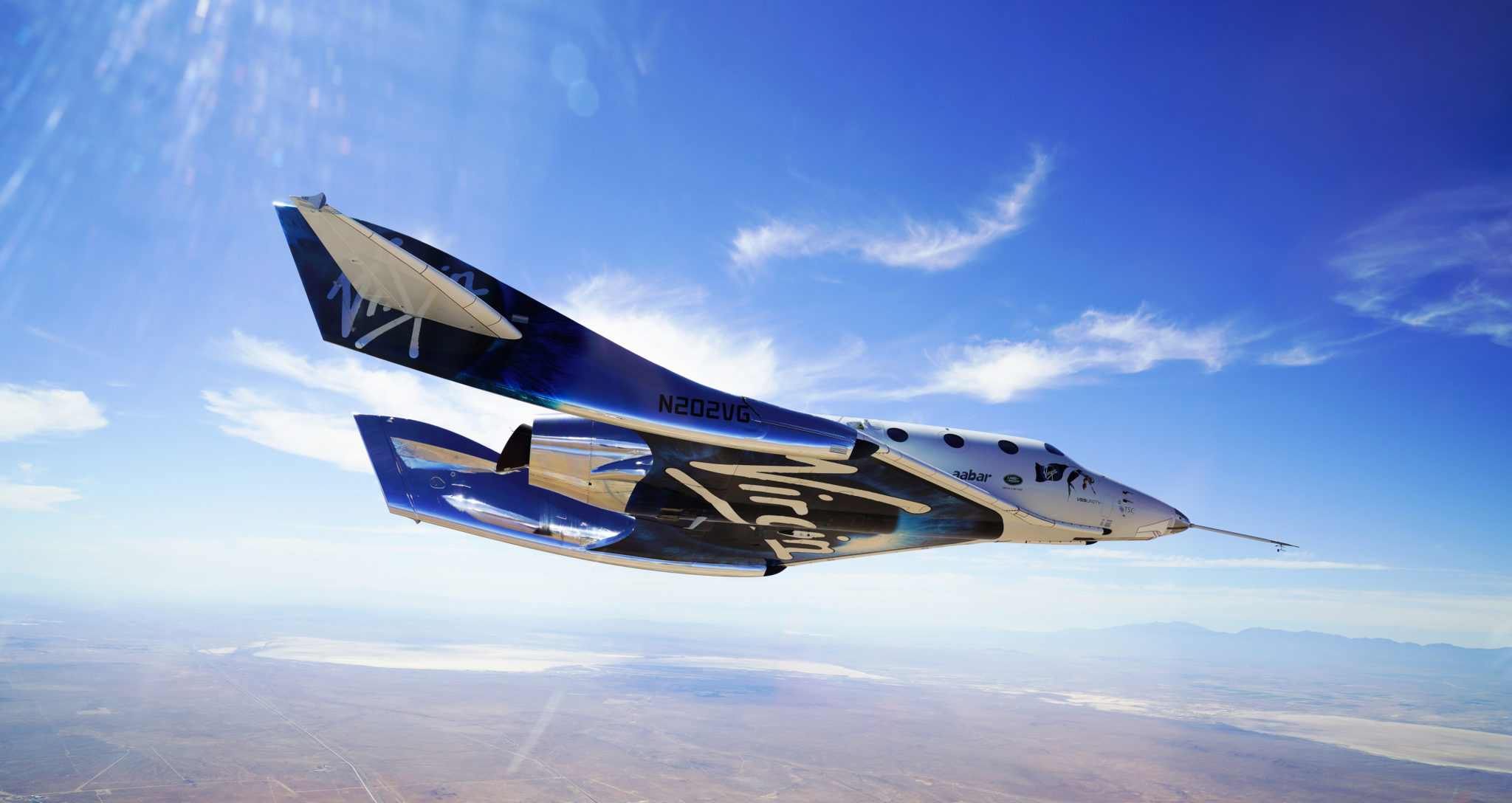Virgin Galactic delays commercial SpaceShipTwo spaceflights until 2021

Virgin Galactic passengers will have to wait until at least 2021 for the first flight opportunities.
Before passengers climb aboard the suborbital space plane SpaceShipTwo, the space tourism firm will send at least two powered test spaceflights aloft from New Mexico's Spaceport America, where the company moved earlier this year. Virgin performed two glide tests at the spaceport this spring, after the novel coronavirus pandemic erupted.
In its quarterly results call held on Monday (Aug. 3), the space tourism firm stated that the pandemic "slowed the company's pace" for the first operational spaceflight due to new health and safety procedures, in line with guidelines from local and state health officials as well as the Centers for Disease Control and Prevention.
Related: Virgin Galactic unveils sleek interior of SpaceShipTwo spaceliner (photos, video)
The plan for now, Virgin said, is for the first powered spaceflight to leave Spaceport America this fall. That mission will only carry two test pilots, no passengers. If that outing goes well, Virgin will initiate a second spaceflight from Spaceport America, carrying two test pilots and four mission specialists to evaluate the performance of the customer cabin.
Virgin added that safety "remains the central focus" and the flight schedule may change if something unanticipated happens. That said, founder Richard Branson is expected to take his first spaceflight in the first quarter of 2021, marking the soft launch of operational flights for Virgin.
"Our preparations for commercial service are well underway under the leadership of our new CEO, Michael Colglazier," George Whitesides, Virgin's chief space officer and former CEO, said in the same quarterly results statement.
Get the Space.com Newsletter
Breaking space news, the latest updates on rocket launches, skywatching events and more!
"Going forward, I am excited to focus my efforts and expertise on important future business areas, including high speed travel," Whitesides said. "We believe that these new technologies represent the future of aviation, and we look forward to working with respected parties like NASA, Boeing and Rolls Royce to explore how we can revolutionize the way we travel."
The first commercial flights for Virgin Galactic have been kicked down the road repeatedly since the company was founded, in 2004. More recently, Virgin expected to send paying passengers into space in mid-2020; the announcement was made a year ago after Virgin merged with Social Capital Hedosophia, a publicly traded holding company. Virgin said this February, however, that it anticipated pushing the first operational flights back, according to SpaceNews.
Also in February, Virgin announced it planned to resume selling tickets shortly; the company entered a ticket sale hiatus in December 2018 after VSS Unity, the latest version of SpaceShipTwo, reached space in a test flight. In February, Virgin launched a "One Small Step" qualification program through which would-be passengers could pay a refundable $1,000 deposit to be called first when reservations resume.
In a conference call on Monday with investors, Whitesides said the company temporarily suspended marketing the "One Small Step" program this year (marketing has since resumed), and that more than 700 people have now signed up for a spaceflight, SpaceNews said in another report. The conference call took place on the same day that Virgin announced it has partnered with Rolls Royce to develop a Mach 3 supersonic passenger jet.
In May 2020, Virgin announced it had entered an Space Act Agreement with NASA as part of its plan to offer orbital flights. Virgin announced in Monday's conference call that 12 suborbital customers agreed to pay a "significant refundable deposit" for one of these orbital flights, SpaceNews added.
Virgin reported no revenue in the second quarter of 2020, along with a net loss of $63 million. The net loss was similar to the $60 million net loss reported in the first quarter of 2020.
Follow Elizabeth Howell on Twitter @howellspace. Follow us on Twitter @Spacedotcom and on Facebook.
Join our Space Forums to keep talking space on the latest missions, night sky and more! And if you have a news tip, correction or comment, let us know at: community@space.com.

Elizabeth Howell (she/her), Ph.D., was a staff writer in the spaceflight channel between 2022 and 2024 specializing in Canadian space news. She was contributing writer for Space.com for 10 years from 2012 to 2024. Elizabeth's reporting includes multiple exclusives with the White House, leading world coverage about a lost-and-found space tomato on the International Space Station, witnessing five human spaceflight launches on two continents, flying parabolic, working inside a spacesuit, and participating in a simulated Mars mission. Her latest book, "Why Am I Taller?" (ECW Press, 2022) is co-written with astronaut Dave Williams.









